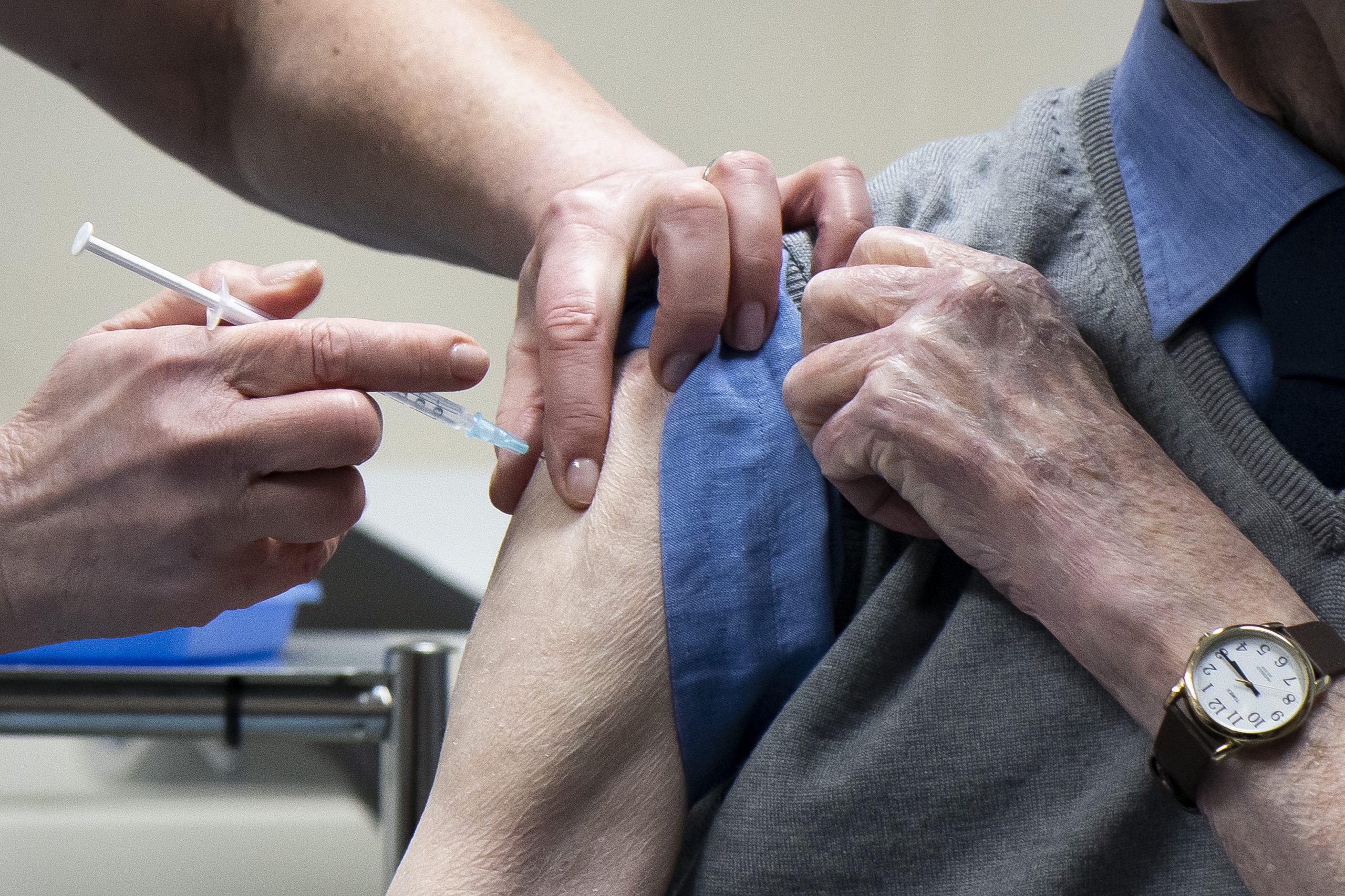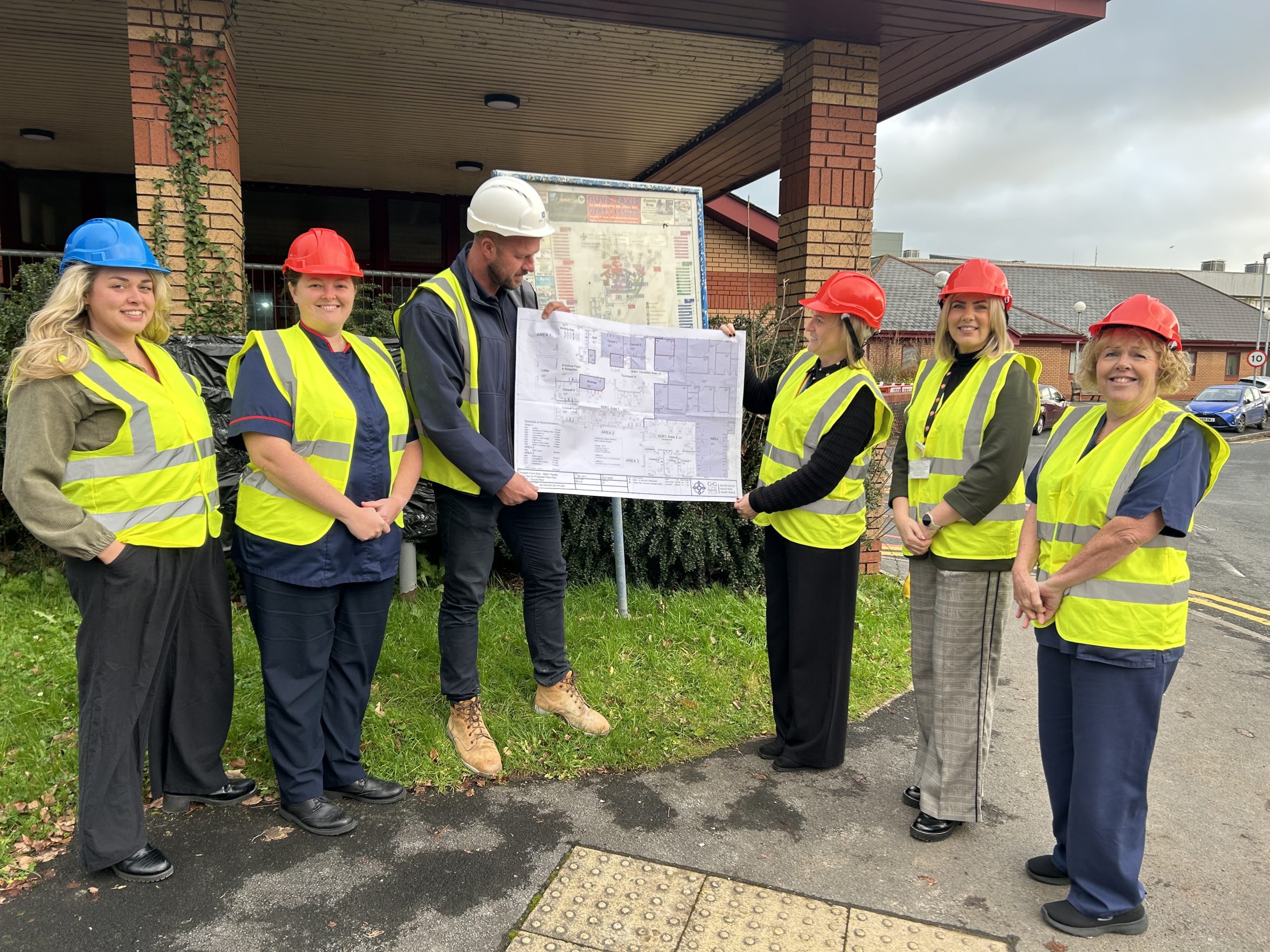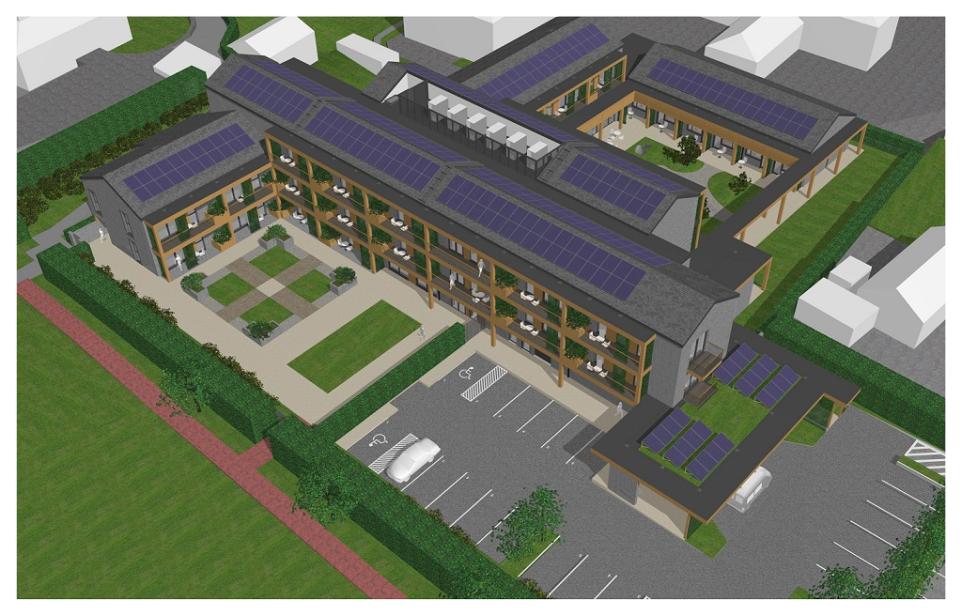Health
Autumn Covid-19 Booster Shots: New Recommendations for Wales

THE JOINT COMMITTEE on Vaccination and Immunisation (JCVI), the independent advisory committee, has just issued their recommendations for the upcoming autumn Covid-19 booster vaccination programme. This timely advice comes in light of the current health challenges and the recent emergence of a concerning new variant known as BA.2.86.
Eluned Morgan MS, the Welsh Minister for Health and Social Services, released a statement yesterday that the central objective of this autumn’s booster programme is to amplify immunity among the most vulnerable segments of the population and to strengthen protection against the severe impacts of Covid-19.
Highlighted in the JCVI’s recent report, the recommended vaccines for the autumn of 2023 include the bivalent Omicron BA4-5 mRNA and the monovalent XBB vaccines, contingent upon their licensure by the MHRA. The committee has emphasised the urgency in utilising the most recent Covid-19 variant vaccines, particularly for those with a heightened clinical risk of severe Covid-19.
Patients will be administered the most suitable vaccine based on age and clinical risk factors. The JCVI also suggests:
- A minimum interval of three months between the booster and the last received vaccine dose. However, logistical considerations might necessitate some flexibility.
- Should there be significant delays in rolling out the most recent UK-approved Covid-19 vaccine by December, administering the vaccine promptly should be favoured over vaccine selection.
- In circumstances that permit, Covid-19 and flu shots may be simultaneously given.
In the wake of the BA.2.86 variant’s discovery, Wales is set to kick off its winter respiratory vaccination programme on 11 September, prioritising the high-risk groups. This campaign will initiate with the vaccination of care home residents with the current stock of vaccines. The NHS in Wales has reportedly made significant headway in preparing for the forthcoming autumn initiative, with appointment notifications expected imminently.
The strategy for the winter vaccination drive will not only address the threat of Covid-19 but will also shield eligible individuals from the seasonal flu. Ms. Morgan ardently advocates for individuals to avail themselves of both vaccines when available, citing it as the most effective means to guard oneself and loved ones. It’s deemed an imperative step to ensure Wales’ safety during the challenging winter months.
In her statement, Ms. Morgan conveyed her profound gratitude to the NHS and all stakeholders in the vaccination programme for their relentless dedication. Given that the statement was released during recess, Ms. Morgan has expressed her readiness to provide further details or address any queries upon the Senedd’s resumption.
Health
£2m hospital upgrade to ease A&E pressure at Carmarthen site

MAJOR refurbishment work has begun at Hywel Dda University Health Board’s Glangwili Hospital after more than £2 million in funding was secured from the Welsh Government.
The £2.096m investment will be used to overhaul the hospital’s Same Day Emergency Care (SDEC) unit, creating extra consultation rooms, a redesigned reception, and a more comfortable environment for both patients and staff.
Health chiefs say the expanded unit will help reduce pressure on the hospital’s busy Emergency Department by allowing more people to be treated quickly without needing an overnight stay.
The project forms part of wider efforts to improve urgent and emergency care across the health board’s sites, including the Minor Injury Unit at Prince Philip Hospital.
Keith Jones, Director of Operational Planning and Performance for the health board, said the funding would increase capacity and speed up patient flow.
He said: “This investment will help us reduce pressure on the Emergency Department and provide a smoother, swifter experience for patients. We’re grateful to Welsh Government for the support.”
Services temporarily relocated
While the work takes place, several services have moved elsewhere on the hospital site.
The SDEC unit, Discharge Lounge and Medical Day Unit have relocated to Y Lolfa, formerly Padarn Ward.
The Cancer Information and Support Service and Cancer Psychological Support Service have also moved, although contact details remain unchanged.
Some clinics, including podiatry, neuro-rehabilitation and occupational therapy, will stay at the Priory Day Hospital, but patients may need to use different access routes.
Patients are being notified through appointment letters, and extra signage will be in place around the hospital. Staff are urging visitors to check their letters carefully or contact departments directly if unsure where to attend.
Cabinet Secretary for Health and Social Care Jeremy Miles said the upgrade would help tackle overcrowding and delays.
He said: “This investment will reduce waits, ease handover pressures and improve the overall experience for patients and staff when they need urgent or emergency care.”
Work is expected to continue over the coming months.
Community
Work on new 26-home Pembrokeshire development gets underway

CONSTRUCTION work has started on a Haverfordwest scheme to provide sheltered housing apartments for the over-55s.
The Tŷ Haverfordia affordable housing and reablement development of 26 sheltered housing apartments for the over-55s alongside a dedicated 12-bed reablement centre to support residents returning home from hospital at the former Haverfordia House site, delivered by Wynne Construction, forms part of Pembrokeshire County Council’s “continued commitment to increasing high‑quality, accessible housing and deliver effective modern health and social care support across Pembrokeshire”.
Initial works began on January 26 and include securing the site, setting up a small compound and contractor parking area, installing controlled access for site personnel, and positioning temporary office and welfare units.
To maintain safe access to nearby facilities, including the GP surgery and Haverfordwest Leisure Centre, pedestrian routes through the area will remain open.
In addition, a minimum number of public parking spaces, including disabled bays, have been kept with Pay & Display machines relocated to reduce inconvenience.
In keeping the minimum number of parking spaces as well as needing to accommodate essential contractor welfare facilities, a small section of Rifleman Field has had to be used during the duration of the development of the site.
This space will be securely fenced off, and the footprint minimised. Any areas of Rifleman Field affected by the works will be fully reinstated on completion and restored to a condition that is equal to or better than at present.
To ensure residents and stakeholders are kept informed and have the opportunity to engage with the development, Pembrokeshire Housing Services will be hosting a Community Engagement Drop-in Event on Thursday, February 19, 5-7pm, at The Green Room, Haverfordwest Leisure Centre.
Pembrokeshire County Council Cabinet Member for Housing, Cllr Michelle Bateman, said: “I am pleased that we have finally reached the stage of commencing on site and look forward to seeing the development progressing.
“We have been able to progress with the development after receiving much-needed Welsh Government grant assistance for both the reablement and housing parts of the development.”
Last year, Pembrokeshire County Council’s Cabinet, members approved awarding a fixed contract of £13,560,454.21 to C Wynne & Son for the Haverfordia House works.
In 2019, Cabinet backed the acquisition of the freehold of Haverfordia House, with the overall intention to deliver a new housing and wellbeing facility following its demolition.
A report for members at last year’s June meeting said: “As well as providing long-term residents with a sense of place and community, it will provide short-term reablement users with the facilities and in-house support which they need to relearn the skills required to keep them safe and independent when they return home.”
It said there was a need for one-bed properties, and a review of sheltered over 55 accommodation was undertaken in 2018-19 which identified that existing sheltered housing stock is “no longer fit for purpose”.
Health
Health board targets rise in steroid and gym drug use across west Wales

THE LOCAL health board has launched new targeted measures after recording a sharp rise in the use of steroids and other image-enhancing drugs across the region.
Hywel Dda University Health Board says needle exchange figures show significant growth over the past two years in people seeking support related to Image and Performance Enhancing Drugs (IPEDs), including anabolic steroids and so-called Selective Androgen Receptor Modulators (SARMs).
SARMs, while marketed online as safer alternatives to steroids, are illegal to sell in the UK and health professionals warn they carry serious and largely unknown risks.
The health board has now teamed up with Dyfed Drug and Alcohol Service (DDAS) and Choices, a young people’s substance use service, to tackle what officials describe as an “emerging public health challenge”.
Workshops and outreach
Two key initiatives have been introduced.
Educational workshops are being delivered to young people, focusing on the risks of using performance-enhancing substances during physical development and the potential long-term effects on hormones, mental health and fertility.
At the same time, enhanced support is being offered to people already involved in gym and fitness culture, with harm-reduction advice, health monitoring and confidential drop-in services.
Support includes testosterone testing, blood checks, cycle provision kits and discreet one-to-one consultations.
One service user described the programme as “quick, professional and non-judgemental”.
They said: “The drop-in clinic for my blood test was really convenient. I was seen quickly and given a full run-down of the services available. The staff made me feel comfortable the whole time and I got my results back faster than expected.”
Taking support into the community
The team has also worked directly with local gyms, leisure centres and sports venues, speaking to more than 100 people during five outreach sessions.
Twelve DDAS staff members have completed specialist IPED training delivered by Public Health Wales to strengthen expertise within the service.
Rachel Wilson, Resilient Families Manager at Choices, said the aim is to reduce stigma.
She said: “We’re proud to work alongside Hywel Dda to ensure people who use IPEDs are met with understanding, not judgement. These initiatives are helping us reach individuals who may not have previously considered accessing support.”
Craig Jones, Prevention and Population Health Improvement Manager, added: “This work is about meeting people where they are. By listening and responding with compassion and evidence-based care, we’re making a real difference.”
Dr Ardiana Gjini, Executive Director of Public Health, said the approach showed the board’s commitment to early intervention.
She said: “These initiatives reflect a proactive, collaborative response to emerging health challenges and demonstrate our dedication to protecting the health of our communities.”
Anyone seeking confidential advice or support can contact DDAS on 03303 639997 to book an appointment.
-

 Crime2 days ago
Crime2 days agoSex offender jailed after living off grid in Pembrokeshire and refusing to register
-

 Health21 hours ago
Health21 hours agoHealth board targets rise in steroid and gym drug use across west Wales
-

 News3 days ago
News3 days agoPrincess of Wales visits historic Pembrokeshire woollen mill
-

 Crime7 days ago
Crime7 days agoPembroke man accused of child sex offences sent to Swansea Crown Court
-

 Health5 days ago
Health5 days agoDoctor struck off after sexual misconduct findings at Withybush Hospital
-

 Crime23 hours ago
Crime23 hours agoTeacher injured and teenager arrested for attempted murder at Milford Haven School
-

 News5 days ago
News5 days agoHerald journalists to feature in true-crime documentary on local lockdown murder
-

 Community7 days ago
Community7 days ago50s women threaten legal action over pension compensation refusal


























